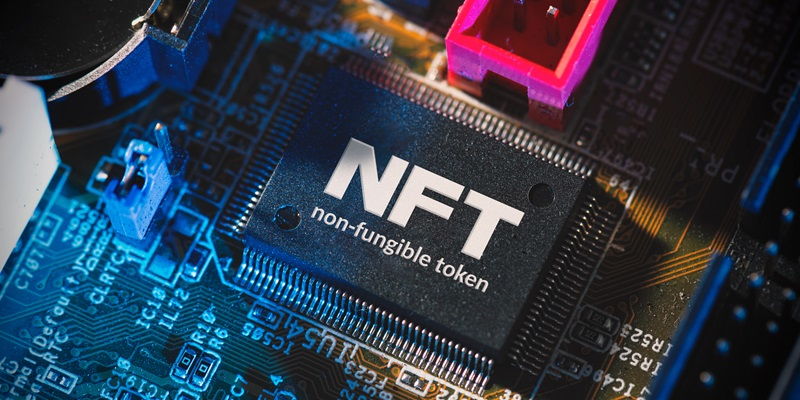Non-fungible tokens (NFTs) have cemented their place as an integral part of the Web3 ecosystem in 2023. The past year has witnessed tremendous growth and innovation in this domain, captivating the attention of investors, artists, and collectors alike. This article delves into the remarkable developments surrounding NFTs, from soaring sales volumes to the rise of Bitcoin Ordinals, as well as the controversies and legal challenges faced by the industry. Additionally, we explore the benefits of NFTs for artists and creators, highlighting the ability to earn royalties even after releasing their collections.
Remarkable Sales Volume of NFTs
In the last 30 days alone, the top 10 blockchains used for NFTs have recorded a collective sales volume surpassing $1.5 billion. This staggering figure underscores the growing appetite for digitally unique and verifiable assets. The popularity of NFTs extends beyond art, with sports collectibles, virtual real estate, and metaverse items gaining substantial traction in the marketplace.
Introduction of Bitcoin Ordinals
One notable development within the NFT space is the rise of Bitcoin Ordinals. This innovation allows for the storage of assets’ contents directly on the blockchain. By leveraging the capabilities of Bitcoin’s protocol, Ordinals provide enhanced security, transparency, and verifiability to NFT transactions. This breakthrough has further solidified the role of blockchain technology in revolutionizing digital ownership.
Decentralized Storage of NFT Assets
Traditionally, NFT assets were stored on external servers or marketplaces, introducing vulnerabilities and reliance on third parties. With Bitcoin Ordinals, the assets’ contents are stored directly on the blockchain, eliminating the need for centralized storage. This decentralized approach ensures that the ownership of NFTs remains immutable and accessible to owners, free from the risk of central points of failure.
Unregistered Securities Claim with U.S. Regulators
Despite the rapid growth and immense promise of NFTs, the industry faced its first challenge in 2023 when the U.S. Securities and Exchange Commission (SEC) encountered an unregistered securities sales claim involving NFTs. The SEC’s duty to protect investors and maintain fair market practices prompted them to take action against companies allegedly selling unregistered securities in the form of NFT collections.
SEC’s Action Against Impact Theory
On August 28, the SEC charged Los Angeles-based entertainment company Impact Theory for allegedly selling unregistered securities in the form of its NFT collection, Founder’s Keys. This landmark case shed light on the need for regulatory oversight while raising important questions about the classification of NFTs and ensuring investor protection within this ever-evolving landscape.
Another Lawsuit Filed by SEC
Following the charges against Impact Theory, the SEC has intensified its scrutiny of the NFT market by filing another lawsuit against a company involved in the sale of NFTs. These legal actions have sparked debates in the industry, as some argue that regulation should strike a balance between protecting investors without stifling innovation and creativity.
Mila Kunis and the Stoner Cats Project
In a testament to the mainstream adoption of NFTs, Hollywood actress Mila Kunis spearheaded the Stoner Cats project. Collaborating with several NFT creators, Kunis facilitated the creation of an animated series tied to NFT ownership. The project exemplified the potential of NFTs to disrupt traditional entertainment distribution models while showcasing the collaborative and creative endeavors made possible through blockchain technology.
Controversy Surrounding the SEC’s Crackdown
While some applaud the SEC’s intervention to safeguard investors, many disagree with the regulatory crackdown on NFTs. Critics argue that the market should be allowed to mature naturally, avoiding excessive regulation that could stifle creativity and innovation. Balancing investor protection with fostering a vibrant and dynamic NFT ecosystem remains a pivotal challenge for regulators in the years ahead.
Royalties as a Benefit for Artists and Creators
One of the most significant benefits of NFTs for artists and creators is the ability to earn royalties even after releasing their digital collections. Smart contracts embedded within NFTs enable artists to receive a percentage of secondary sales, providing a more sustainable income stream in the long term. This groundbreaking feature has the potential to revolutionize the way artists monetize their works while empowering them with greater financial independence.
As non-fungible tokens (NFTs) continue to shape the Web3 ecosystem in 2023, their impact on art, collectibles, and digital ownership remains undeniable. Despite facing legal challenges and regulatory scrutiny, the NFT market has demonstrated resilience and adaptability. Artists, collectors, and investors are witnessing new frontiers of creativity, economic opportunity, and ownership rights. The ongoing controversies surrounding the regulatory landscape will shape the future of this industry, emphasizing the need for thoughtful and balanced approaches to ensure its continued growth. The transformational potential of NFTs continues to unfold, promising an exciting future where digital assets and decentralized ownership intertwine.

